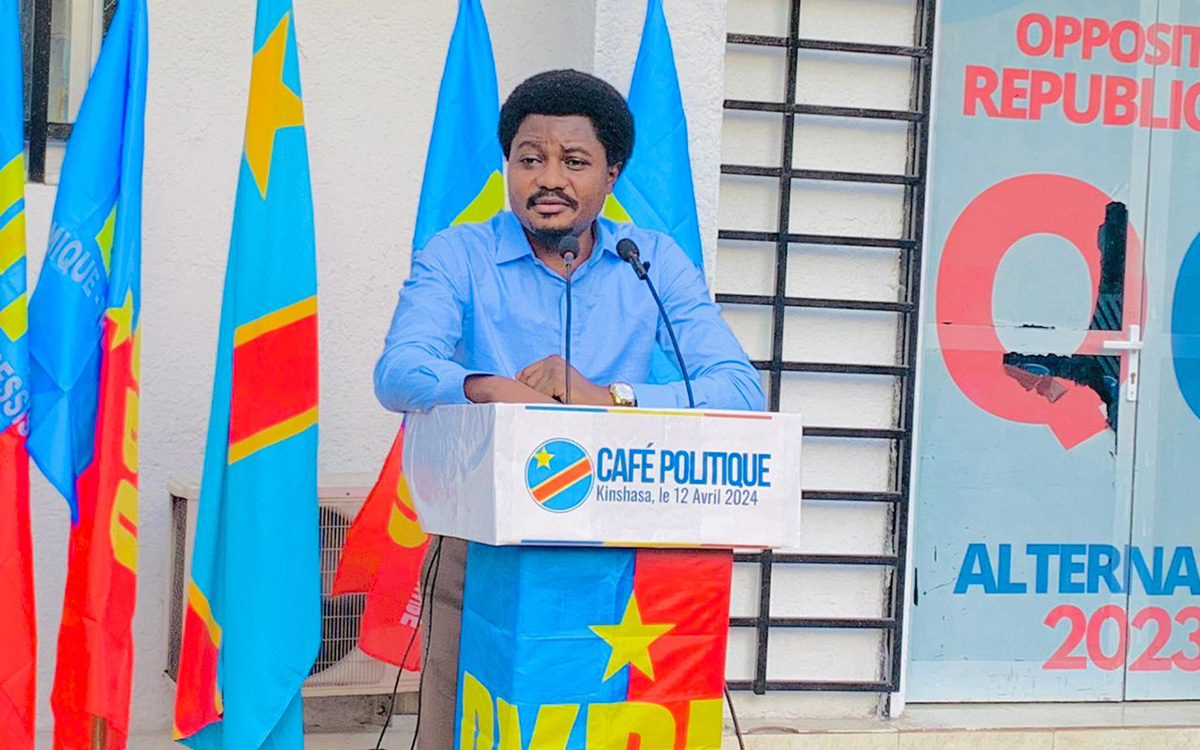World
Colombian same-sex couples seek legal recognition
Gays and lesbians petition for civil marriages amid legal confusion

Gays and lesbians approached notaries and judges across the country with the hope they would be able to enter into a civil marriage. These include three same-sex couples who submitted paperwork to a municipal civil court in Bogotá, the Colombian capital, seeking the ability to tie the knot.
“There are many couples like us in this country who have found their relationships have reached the point of committing themselves in civil marriage,” Elizabeth Castillo, who has been with her partner, Claudia Zea for four years, said during a press conference outside the court. “For gay people to marry is an act of valor.”
“We are very happy that Colombia considers everyone equal,” Carlos Rivera told Caracol Televisión after he and his partner Gonzalo Ruíz filed their paperwork in the same Bogotá court.
Colombia’s Constitutional Court in 2011 ruled gays and lesbians can legally register their relationships on June 20 if the country’s lawmakers failed to extend to them the same benefits heterosexuals receive through marriage. The Colombian Senate in April overwhelmingly rejected a measure that would have allowed same-sex couples to tie the knot in the South American country.
It remains unclear whether gays and lesbians can actually tie the knot in Colombia because the court’s ruling did not contain the word “marriage.” The judges instead said same-sex couples could go before a notary or a judge to “formalize and solemnize their contractual link.”
The Colombian newspaper El Tiempo on Thursday reported that Attorney General Eduardo Montealegre Lynett said notaries and judges are free to interpret the court’s decision because there is no law that specifically addresses the issue of relationship recognition. Inspector General Alejandro Ordoñez Maldonado and other Colombian officials have said the 2011 ruling did not extend the possibility of marriage rights to same-sex couples.
Some notaries had said before the June 20 deadline that they would not marry same-sex couples, but rather allow them to enter into a “solemn contract” that is similar to an agreement into which two people enter when they buy a house together.
Caracol Televisión interviewed a gay man in Cali earlier on Thursday who said the notary he and his partner approached offered them a “solemn contract” because he claimed he could not marry them.
“This in the view of Colombia Diversa does not comply with the Constitutional Court’s order,” Marcela Sánchez Buitrago, executive director of Colombia Diversa, an LGBT advocacy group, told the Blade on Tuesday.
Colombia Diversa has advised same-sex couples who are denied a civil marriage to challenge the decision in court.
Historic day for Colombian LGBT rights advocates
In spite of lingering questions over how to interpret the court’s decision, LGBT rights advocates described Thursday as a historic day in Colombia.
“Congratulations to all those who took part in this fight for marriage equality in Colombia,” Colombia Diversa said in a Tweet earlier in the day.
Rivera described the arrival of the court’s deadline to Caracol Televisión as “the first step.”
Wilson Castañeda Castro, director of Caribe Afirmativo, an LGBT advocacy group that works in cities along Colombia’s Caribbean coastline, told the Blade the fight for nuptials for gays and lesbians in the country will continue.
“They (notaries and judges) are proposing a ‘solemn contract’ and we are not,” he said. “We are only accepting marriage.”
India
Indian political parties for the first time include LGBTQ rights in election platforms
Voters will begin to cast ballots on April 19

The world’s largest democratic exercise will begin in India on April 19 as citizens begin to cast their votes in the country’s election.
This year’s election is different because national level political parties for the first time are promising to extend marriage rights to same-sex couples as part of their election platforms.
The Indian National Congress, one of India’s oldest political parties, promised after wide consultation that it would introduce a bill that would recognize civil unions between couples who are part of the LGBTQ community. The party, which has governed India for the majority of the period since independence from the U.K. in 1947, has refrained from taking a stance on laws that include Section 377, which criminalized consensual same-sex sexual relations.
Then-Health Minister Gulam Nabi Azad in 2011 when the INC was in power said homosexuality is a disease. He made the controversial comment while speaking at an HIV/AIDS conference in New Delhi, the Indian capital.
“Unfortunately, this disease has come to our country too,” said Azad. “Where a man has sex with another man, which is completely unnatural and should not happen but does.”
When the Delhi High Court was hearing the Naz Foundation case, the Home Affairs Ministry opposed the striking down of Section 377 based on its belief that homosexuality cannot be morally condoned. The INC never struck down Section 377, which criminalized homosexuality, in parliament.
A 5-judge panel on the Supreme Court on Sept. 6, 2018, decriminalized consensual same-sex sexual relations.
The Communist Party of India (Marxist) on April 4 unveiled its platform with a range of socialist commitments, including support for LGBTQ rights. Among these pledges is to amend the Transgender Persons (Protection of Rights) Act 2019 to address community concerns and ensure legal recognition and protection for same-sex couples akin to marriage.
The platform also outlined plans to introduce a bill similar to the Special Marriage Act of 1954, which allows partners to be listed as dependents and facilitating like inheritance, alimony in the event of divorce and other issues. The party further pledged to enact a comprehensive anti-discriminatory bill that would include LGBTQ people, ensure quotas in educational institutions and implement horizontal reservations in employment.
Addressing the issue of crimes against LGBTQ people, the platform promised to treat such offenses on par with crimes against heterosexuals. The platform also calls for tackling bullying, violence and harassment of gender non-conforming and LGBTQ people in educational settings, enforcing anti-hazing policies and combating hazing based on sexual orientation and gender identity.
The platform further touched issues related to transition and informed consent.
The Special Marriage Act of 1954 is a law that provides for civil unions among Indians and Indian nationals who live abroad, regardless of the religion or faith followed by either party. This law enables people from two different religious backgrounds to enter into marriage. Parliament in 2019 passed the Transgender Persons (Protection of Rights) Act that extended rights to trans people.
Brinda Karat, a former member of the Rajya Sabha, the upper house of the Indian Parliament, and leader of the Communist Party of India (Marxist), spoke with the Washington Blade and said the current government has homophobic ideas that are not acceptable to the party.
The ruling government under Prime Minister Narendra Modi is striving to secure more than 400 parliament seats in the upcoming election, aiming for a substantial majority.
Various polls conducted by Indian news organizations indicate a probable victory for the ruling Bharatiya Janata Party. In response to the BJP’s dominance, Congress and several national and regional parties have joined forces as the Indian National Developmental Inclusive Alliance.
This alliance comprises 26 opposition political parties. Despite its formation, however, there is no clear coalition strategy in place and only two parties have included LGBTQ-specific policies in their election platforms.
The Blade reached out to Congress’ spokesperson for comment, but has not received a response. The BJP also did not respond to a request for comment.
The party has yet to release its election platform.
Ankush Kumar is a reporter who has covered many stories for Washington and Los Angeles Blades from Iran, India and Singapore. He recently reported for the Daily Beast. He can be reached at [email protected]. He is on Twitter at @mohitkopinion.
Africa
Ugandan activists appeal ruling that upheld Anti-Homosexuality Act
Country’s Constitutional Court refused to ‘nullify’ law

Twenty-two LGBTQ activists in Uganda have appealed this month’s ruling that upheld the country’s Anti-Homosexuality Act.
The Constitutional Court on April 3 refused to “nullify the Anti-Homosexuality Act in its totality.”
President Yoweri Museveni last May signed the law, which contains a death penalty provision for “aggravated homosexuality.”
The U.S. subsequently imposed visa restrictions on Ugandan officials and removed the country from a program that allows sub-Saharan African countries to trade duty-free with the U.S. The World Bank Group also announced the suspension of new loans to Uganda.
Media reports indicate Sexual Minorities Uganda Executive Director Frank Mugisha and Jacqueline Kasha Nabagesara are among the activists who filed the appeal.
Africa
Congolese lawmaker introduces anti-homosexuality bill
Constant Mutamba’s measure seen as distraction from country’s problems

A member of the Democratic Republic of Congo’s National Assembly who is a leader of the country’s opposition party has introduced a bill that would criminalize LGBTQ people.
Part of the bill that Constant Mutamba, leader of the Dynamic Progressive Revolutionary Opposition platform, has put forth states anyone who “commits a homosexual act (including acts and gestures) will be liable to a 5- or 10-year prison sentence.”
The country in recent years has seen government leaders and civic society target the community with anti-LGBTQ sentiments.
The Superior Council for Audiovisual and Communication, Media Regulatory Authority last June cautioned the media against showing LGBTQ-specific conversations. Several activists have criticized Mutamba’s bill, saying it seeks to move attention away from governance, service delivery and other pertinent issues in the country.
Sirius Tekasala, a human rights activist, said a person’s sexual orientation does not impact issues of governance.
“The proposed bill does not go in the direction of improving the socio-economic life of the Congolese people,” said Tekasala. “It’s not homosexuals who prevent you from doing your job well or from breathing. This is a violation of human rights.”
Mbuela Mbadu Dieudonné, a social analyst and trade unionist, said the bill is just a way of deviating people from the pertinent issues.
“He should suggest how to get the Congolese people out of this precariousness of life which is growing on a daily basis,” said Dieudonné. “When we don’t know the real problems of the Congolese people, he sets himself up as the great director of scenes to distract the Congolese people.”
Many Congolese, however, seem to support the bill and have applauded Mutamba for drafting it.
This is not the first time that such kind of a bill has been drafted.
An anti-homosexuality bill introduced in 2010 would have sentenced people who engage in consensual same-sex sexual relations to between three and five years in prison. The measure, however, did not become law.
Mutamba’s bill, however, may pass with Uganda’s Anti-Homosexuality Act in effect. The country’s Constitutional Court earlier this month upheld it. Burundi, Tanzania and other neighboring countries are also considering similar measures.
Many Congolese people view LGBTQ rights as a Western phenomenon that disregards their religious and cultural beliefs. LGBTQ Congolese are among those who have fled the country and sought refuge in the Kakuma refugee camp in Kenya and other places.
Consensual same-sex sexual relations are not criminalized in the Democratic Republic of Congo, but Congolese law does not recognize same-sex marriages.
-

 Africa2 days ago
Africa2 days agoCongolese lawmaker introduces anti-homosexuality bill
-

 Colorado4 days ago
Colorado4 days agoFive transgender, nonbinary ICE detainees allege mistreatment at Colo. detention center
-

 Politics5 days ago
Politics5 days agoFirst lady warns Trump is ‘dangerous to the LGBTQ community’ at HRC event
-

 Books5 days ago
Books5 days agoNew book offers observations on race, beauty, love










